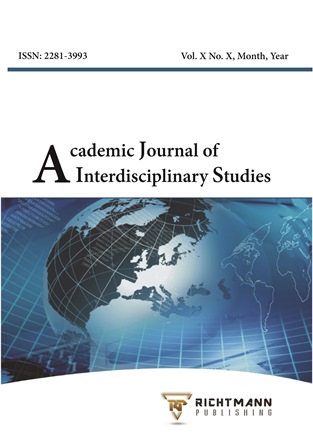Psychosocial Risk Factors Associated with the Quality of Life of Nurses in a Chilean Hospital in 2022
DOI:
https://doi.org/10.36941/ajis-2023-0125Keywords:
Risk Factors, Psychosocial, Quality of Life and NursingAbstract
The objective of this study is to establish the relationship between psychosocial risk factors and the quality of life of nursing professionals in a medium-complexity hospital in Chile. The methodology used in this research is the quantitative, descriptive, cross-correlational approach. The population that participated was 125 nurses, who were self-administered 2 questionnaires: SUSESO/ISTA 21 short version and CVP-35, both valid instruments with their respective reliability. Results: Psychosocial risk factors (PRF) and the Quality of life (QOL) have a weak inverse connection with a coefficient of connections Rho = -.322, calculated p-value = .000, significance level of 0.01 (two-sided). PRS and the QOL dimensions corresponding to managerial support, job demand and intrinsic motivation, there is a weak connection (Rho = -.501; .317 and -.420, and p = . 000). Conclusion: Both the variables and the dimensions of managerial support.
Received: 29 March 2023 / Accepted: 15 August 2023 / Published: 5 September 2023
Downloads
Downloads
Published
Issue
Section
License

This work is licensed under a Creative Commons Attribution-NonCommercial 4.0 International License.
This work is licensed under a Creative Commons Attribution-NonCommercial 4.0 International License.








